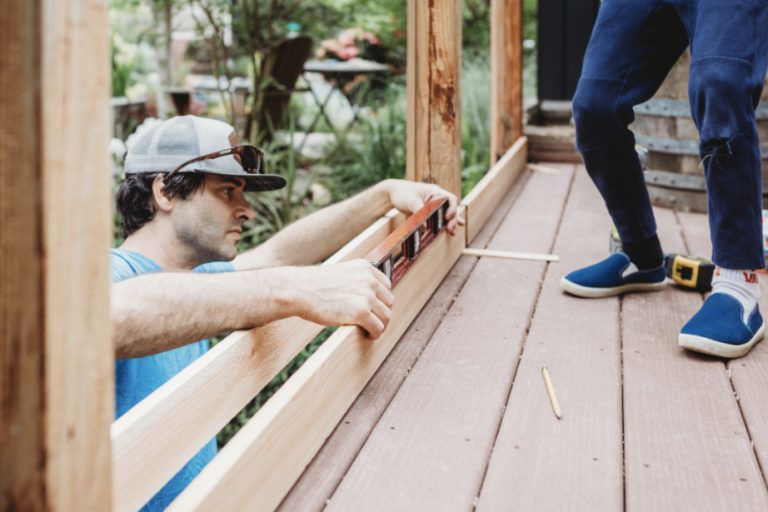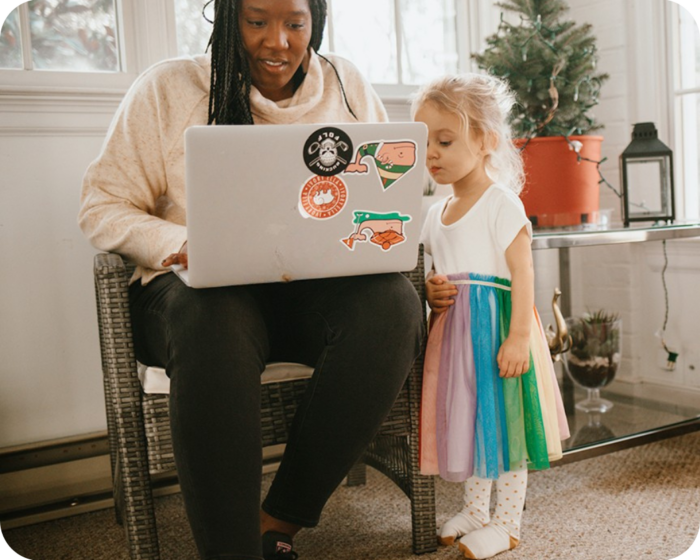Since the start of the Coronavirus pandemic, much of our daily lives have gone virtual.
Doctors’ appointments, work meetings, and hangouts seem to work out pretty well. But other things, like turning a wrench or swinging a hammer, are a little trickier to conduct remotely.
Unfortunately, a plumber can’t fix a leaking pipe in a video meeting, and a carpenter can’t remodel a kitchen through a messaging app. Some activities just require in-person interactions.
For projects you’d rather not delay, consider these steps to safely invite contractors into your home if you’re worried about the spread of germs or viruses.
1. Establish your communication method
Like any other relationship, communication with your contractor is key. Before you begin a project, establish how you want to contact each other. Are you comfortable talking in person with 6 feet of distance? Would talking on the phone from separate rooms be better? Perhaps a video call would work best, so the contractor can show you their work. Whatever you decide, make sure everyone is on the same page.
2. Ask your contractor to wear a mask
Because some viruses spread primarily through respiratory droplets, masks are a key defense. Before a contractor comes over, feel free to ask them if they have a mask or gently remind them to bring one. No need to feel like a nag, remember: Your comfort in your home comes first. And most pros won’t need a reminder, anyway — they’ll want to protect themselves, too.
3. Clarify which areas a contractor may enter
Before a contractor arrives, ask which areas of your home they’ll need to access. Spend some time thinking about what doors they should use and what pathways through your home make the most sense. Communicate these boundaries before the contractor arrives, and ask them to let you know if they need to go beyond the agreed-upon boundaries.
Plan ahead: If a contractor is in your home for a number of hours, they may need to use the restroom. If you’re not comfortable letting them use yours, plan ahead by pointing them toward the nearest public restroom. Let them know you understand if they need a quick break.
4. Direct airflow and increase ventilation
Good ventilation limits the risk of the transmission of some viruses. If possible, use windows, doors, and fans to direct airflow outside of your home. Many contractors have their own fans to control dust, so feel free to ask them to bring one. If a space doesn’t have good ventilation options, wait a few hours before entering it after the contractor leaves.
5. Stagger workers if several are needed
Large jobs may require more than one contractor. If you’re working with a pro who has a team, ask how they can get the job done while limiting the number of people inside your home at a time. This may slow the process and add to the costs, but they should be willing to discuss different options with you. Remember, they work for you. It’s OK to set boundaries!
6. Ask your contractor to disinfect
It’s common practice for contractors to clean up after themselves, so asking them to disinfect at the end of the day shouldn’t be a big deal. Before they come, you could ask whether they do so. Chances are, they’ll say yes. If it’s not part of their normal cleaning routine, ask if they’re willing to go the extra mile. You’ll likely want to clean again once they’re gone, but having them make the first pass will make your job easier.
A little nudge: If you want to help your contractor remember to disinfect, you can provide disinfectant and paper towels. Leave them in a visible spot within your agreed-upon workspace.
7. Consider no-touch payment methods
Ask about paperless payment options. Most pros will offer a few, and may even be able to send you a bill. If they must be paid immediately, ask whether they use an electronic payment service like Venmo, PayPal, or Cash App. If they require a check or cash, put their payment in an envelope and leave it in an easily accessible place.
One more thing before you go: While deciding whether to hire someone, ask what precautions they’re taking to guard against health concerns. Listen for the basics, like wearing a mask, maintaining a social distance, washing their hands, and disinfecting their workspaces. And trust your gut: If you’re not satisfied with their answers, you can always find someone else to do the work!
- So you’re in need of a home appraisal – do appraisers need to come inside during COVID-19?
- Prepping for summer BBQs? Check out our kitchen maintenance tips.




